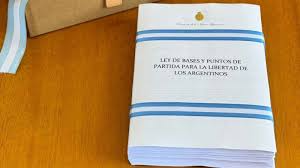
Rejection of the Major Investment Incentive Scheme in Argentina
By María Josefina Arce
The controversial Law of Bases, approved last June by the Argentine Congress, has generated a broad rejection by a large part of the population, especially the acquisitions referred to the Incentive Regime for Large Investments, described as a loss of sovereignty.
Various sectors of society have pointed out that the so-called RIGI represents the handing over of the South American country's natural resources to large foreign companies, thus promoting extractivism.
The RIGI is aimed at investment funds of more than 200 million dollars, and therefore, according to experts, targets mega-mining, agribusiness and hydrocarbons.
Julián Moreno, president of the Assembly of Small and Medium Enterprises, said that the borders are being opened so that resources such as gas, oil and lithium can leave the country, leaving nothing for Argentines.
However, as history has shown, these large investments do not lead to social improvements for the people living in the area, but rather to serious health problems due to environmental damage.
There are many examples of this in Latin American countries that have experienced a long process of plundering their natural wealth, with the approval of governments that have implemented neoliberal policies.
Various sectors denounce the violation of the country's Constitution, which states that every citizen has the right to enjoy a healthy, balanced environment suitable for human development.
Likewise, as has been warned, there will be unfair competition for national industry, as transnational companies will be favored, with advantages ranging from legal to fiscal.
For many, this will lead to the closure of many national companies, with the usual loss of jobs and increase in unemployment, which, due to the economic policies of the government led by Javier Milei, increased by two points in the first quarter of this year, reaching 7.7%.
Poverty will also increase, which, according to a study by the Torcuato Di Tella University, has already reached 50% of the population of the South American country.
Social, environmental and indigenous organizations have expressed their rejection of the incentive regime for large investments, which they denounce as violating the rights enshrined in the Constitution and the international agreements signed by Argentina, especially those related to environmental protection.

